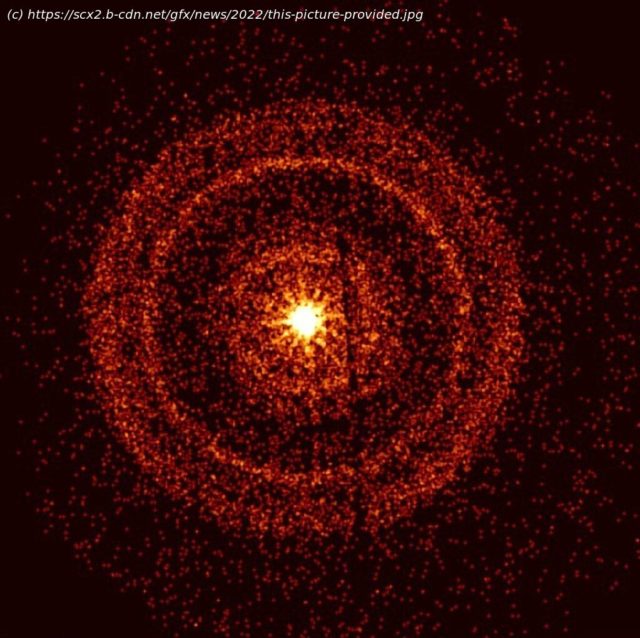Astronomers have observed the brightest flash of light ever seen, from an event that occurred 2.4 billion light years from Earth and was likely triggered by the formation of a black hole.
October 16, 2022
Astronomers have observed the brightest flash of light ever seen, from an event that occurred 2.4 billion light years from Earth and was likely triggered by the formation of a black hole.
The burst of gamma-rays—the most intense form of electromagnetic radiation—was first detected by orbiting telescopes on October 9, and its afterglow is still being watched by scientists across the world.
Astrophysicist Brendan O’Connor told AFP that gamma-ray bursts that last hundreds of seconds, as occurred on Sunday, are thought to be caused by dying massive stars, greater than 30 times bigger than our Sun.
The star explodes in a supernova, collapses into a black hole, then matter forms in a disk around the black hole, falls inside, and is spewed out in a jet of energy that travels at 99.99 percent the speed of light.
The flash released photons carrying a record 18 teraelectronvolts of energy—that’s 18 with 12 zeros behind it—and it has impacted long wave radio communications in Earth’s ionosphere.
«It’s really breaking records, both in the amount of photons, and the energy of the photons that are reaching us,» said O’Connor, who used infrared instruments on the Gemini South telescope in Chile to take fresh observations early Friday.






